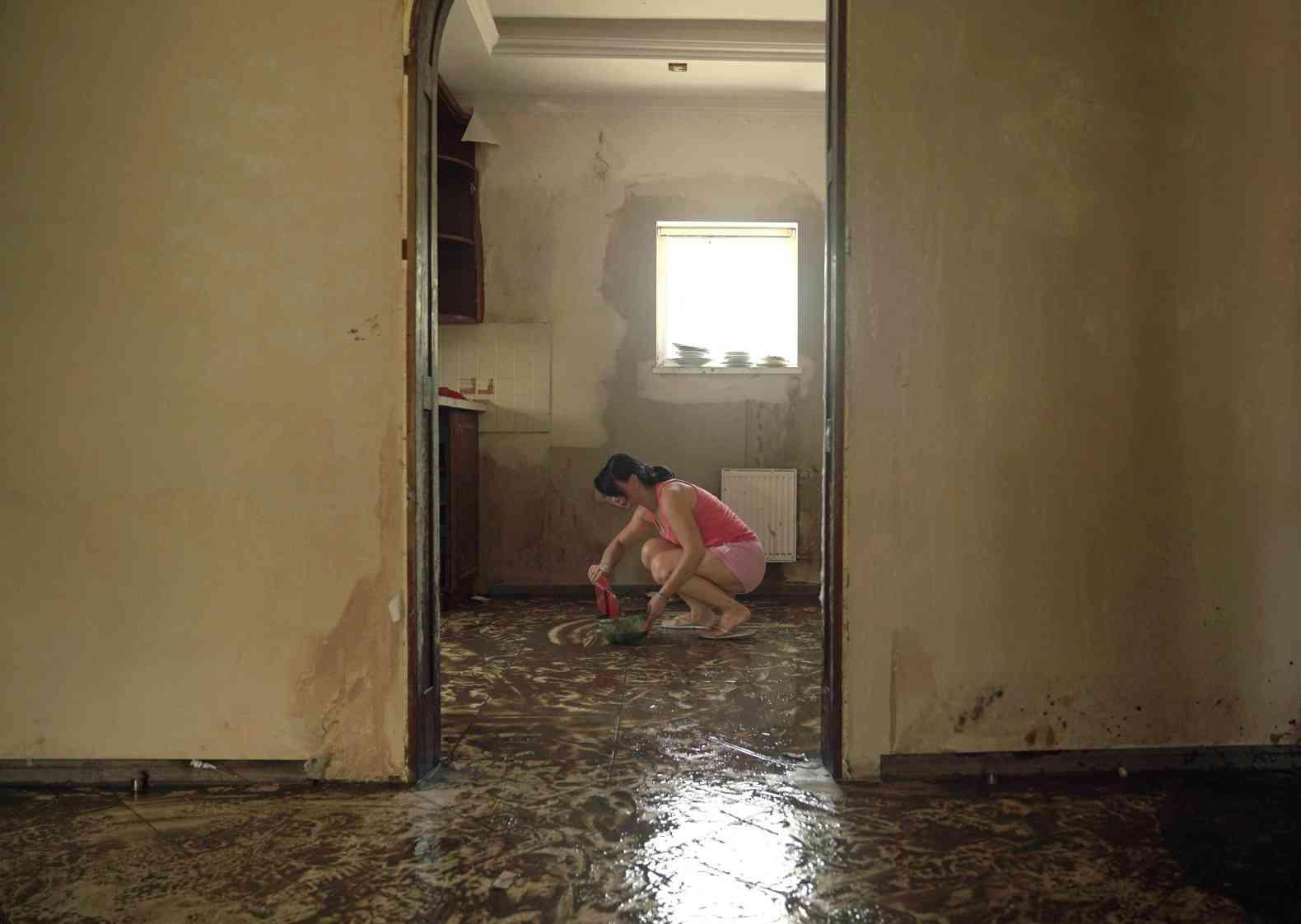Kherson residents return to flood-ruined homes after dam destroyed
KHERSON

"My whole life was in this house. Now I have nothing," said Tetiana Pivneva, after returning to her flooded home in the Ukraine city of Kherson following the catastrophic destruction of a dam.
The June 6 breach of the Russia-controlled Kakhovka dam inundated huge swathes of the Kherson region, forcing thousands to flee and sparking fears of an environmental disaster.
Kyiv has accused Moscow of blowing up the dam on the Dnipro River, while Russia has blamed Ukraine.
When the dam was destroyed, Pivneva was in Odesa, 200 kilometres (125 miles) away, with her two children.
She returned home this week and still cannot process what she was met with.
"Words cannot describe it. I wept for several days," said the 41-year-old widow.
"Even if I were here, I wouldn't have been able to do anything. The water was unstoppable," the businesswoman added.
The nearby Dnipro river has risen several metres due to the destruction of the dam.
Aided by friends, Pivneva is emptying her home, wading through the mud that covers the floors.
"Here are two suitcases with things left in Odesa, two children, a cat and a dog. All I have," she sighed.
Inside, a shirtless young man checks to see if there's any more furniture to be thrown out while a woman picks up some wallpaper that has fallen to the floor before throwing it onto a growing pile of rubbish in the street.
In the courtyard, rolled-up mattresses lie next to a washing machine.
A friend, Olena Pshenychna, is among those helping out.
"Furniture, sofas, floors, doors, appliances -- everything is thrown away, there's nothing left. We can only save the walls... Maybe in the future, it will be possible to either sell the house or make repairs. There is nothing left," she said.
Situated in a Russian-occupied area of south Ukraine, the destruction of the Kakhovka dam left dozens dead and forced thousands of residents to leave their homes in both Kyiv-controlled and Russian-occupied areas.
Ignoring warnings that it would be dangerous to return home, retired couple Igor and Natalia are also back in Kherson "to try and save what can be saved".
But even the plaster has come off the walls and ceilings.
"We don't have the strength to rebuild, no money. I don't know what we will do," said Natalia.
"This was our son and daughter-in-law's bedroom," said Igor, pointing to a devastated room with mud-covered cupboards strewn across the floor.
The couple are in contact with the authorities to register as flood victims and receive state aid.
In front of a residential building elsewhere in Kherson, shocked residents have piled up their belongings to dry or be thrown away. Armchairs, cots, drawers, vacuum cleaners -- nothing was spared.
Clothes hang from tree branches.
"This is now a typical Kherson courtyard," said Sergiy Sergeyev, a local resident and press officer for a local military brigade.
"People are in the process of cleaning their homes, drying the walls and their belongings, 90 percent which will be sent to landfill," explained the 26-year-old in camouflage fatigues.
Although the water level has finally begun to fall, Russian bombardments have continued unabated since the town was recaptured by the Ukrainian army in November.
On Thursday, four people were injured in yet another strike.
"It's the Russians and their bombings that are the most serious problem for Kherson", said Sergeyev.
















